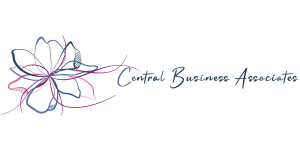Self-reflection could be a missing link for many people who either think they have imposter syndrome, or who feel they lack confidence.
I actually think people sometimes do not know themselves well enough to genuinely show up authentically.
Establish (don’t guess) what your values are, as a human being. Understand what environments you work best in, or who you can work most effectively with. If this is not something you’ve explored yet, I highly recommend this exercise to find out what yours are.
Know your values, and therefore what situations could challenge them, or cause you to feel uncomfortable. This can help you to show up as your most authentic self (or not show up, if that’s the right decision for you!).
And – if you realise along the way, that there are ways you are being misunderstood, due to different personality types etc, you can adjust or explain accordingly. And still show up as your authentic self.
Having done many (many!) different types of personality styles exercises and quizzes, I’ve figured out lots of reasons why I
- struggled to work with certain people
- ended up in conflict with others
- found myself managing people I didn’t know how to motivate, or
- couldn’t see ways to be able to get them to work together cohesively
Eventually, I realised that it wasn’t all ‘them’…
I learned how to look at my own behaviours in each of these scenarios. Established ways in which I could adapt my responses to the individual situations, instead of always expecting everyone to do things my way. I learned to self-reflect. To lead myself first.
Do you understand why you react the way you do to certain situations –
- how you are being spoken to
- what has been said, or
- who it is that’s set the reactions off?
If not, then why would you expect the other person/people to be able to figure it out?
The more you learn about yourself, the more prepared you will be if you see the situations arising. And the more able you will be to lead yourself with confidence. You will understand the best way for you to authentically take part in the discussion. By being more self aware, you can take a deep breath before a challenging conversation. Ask yourself what you each need from the interaction, and then be able to more calmly be in control of what you want to say.
The more self-confidence you gain by being authentic, the more you will realise the benefit of self-reflection. And the less likely you will be to blindly walk into a situation without seeing potential red flags first.
Knowing who your ideal client is, makes it much easier to know whether you can work well together. Not just because they need your services, but from a similar values angle.
It doesn’t mean you can’t, or shouldn’t, work with people outside of your personality style or your values. So long as you go in with that level of understanding. You can be aware of any potential areas where you might not agree, or you might need to remember that the clients values are not the same as yours. Within reason of course – for example if one of your values was friendship, and the potential client was all business, no chit-chat – this shouldn’t prevent you from being able to help them, or work with them. However, it shouldn’t require you to change who you are authentically. If the person can’t deal with your friendly chit-chat, then maybe it is the wrong fit.
A lot of it is going with what feels right – trusting your instincts. And knowing yourself and your values, helps you trust your judgement.
Authenticity and Environment
Over the decades of experience I’ve had in corporate, small and family business, I’ve found that the places I’ve enjoyed working the most, and the ones where I’ve done my best work, are the ones where I could be myself. If I have to think about behaving differently, I will waste time worrying about that, and not getting on and doing the work! Be true to yourself, and work as often as possible with others who are similar or who you are comfortable enough around to be yourself. This will help you strike a much better work/life balance, and help to prevent burnout.
Being fake is exhausting – take it from someone who pretended to be an extrovert for over 40 years!
Authenticity and Energy
Since I began my own self-reflection, and recognised that my energy and creativity generation were dependent on spending time alone, I’ve been much more conscious of not over-stuffing my calendar. I may not be cramming as many meetings into my week, but the ones I do go to, I’m so much more engaged. Offering up more insights, confident and prepared enough to share much more than I would do if I was running from one to the other, exhausted and spread thinly across the subject matters.
I am not someone who enjoys being ‘busy’ for the sake of it. I’d rather be the person who can do 5 projects excellently, than 10 projects half-heartedly. Which person would you want on your team?…
All me – all in – authentically!
I’d love to hear your own stories of self-reflection. What surprising things have you learned about yourself?
Oh and FYI – MY values are: Leadership, Ethics, Creativity, Friendship and Privacy.
Celia
I plan to write about each of them to explain them further – watch out for those stories of self-reflection!
#authenticity #selfconfidence #selfleadership #selfreflection #leadyourselffirst
